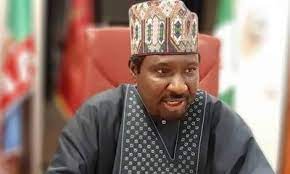The Electoral Bill faced a lot of obstacles, before President Muhammadu Buhari finally signed it, but not without an immediate suggestion that the Act be amended to see section 84(12) deleted. JOSHUAEGBODO writes on the issues
The Bill and Buhari’s initial veto
When the Bill was transmitted after several back and forth movements, the President pointed out his worries on the provision seeking to make primary election of political parties to mandatorily be carried out through direct process, where registered members of a political party are expected to fully participate in the nomination of flag bearers for respective elective offices.
The controversial section 84(12)
When the mandatory direct primaries provisions was expunged, President Buhari yet again pointed out the provision in Section 84(12), as it relates to the need for political appointees to resign if they wish to participate as delegates or aspirants during conventions political parties.
“This (perceived intended electoral system improvement provisions in the Bill), however, cannot be said about one provision as contained in the proposed Bill, which provision constitutes fundamental defect, as it is in conflict with extant constitutional provisions.
“Section 84 (12) constitutes a disenfranchisement of serving political office holders from voting or being voted for at conventions or congresses of any political party, for the purpose of the nomination of candidates for any election in cases where it holds earlier than 30 days to the national election.
“The section provides as follows: ‘No political appointee at any level shall be voting delegate or be voted for at the Convention or Congress of any political party for the purpose of the nomination of candidates for any election.
“This provision has introduced qualification and disqualification criteria that ultra vires the Constitution by way of importing blanket restriction and disqualification to serving political office holders of which they are constitutionally accorded protection.
“The practical application of Section 84(12) of the Electoral Bill 2022 will, if assented to, by operation of law, subject serving political office holders to inhibitions and restrictions referred to under Section 40 and 42 of the 1999 Constitution (as amended)”, the president said while asking that the provision be deleted.
The court judgement
While the debate was on, a court case was instituted to see that the controversial section is deleted. The opposition Peoples Democratic Party (PDP) had earlier sought and got an injunction against the National Assembly, barring it from tampering with the newly enacted Electoral Act. However, a Federal High Court, last week issued a judgement directing Attorney General of the Federation, and Minister of Justice to expunge the section in contention.
Reps kick
The House of Representatives, through its spokesman, Benjamin Kalu in reaction to the development gave indications that the House may seek judicial interpretation of the judgement. He insisted that he was at that time, unaware of of the National Assembly being joined as a party in the suit decided by the said court.
The lawmaker argued that the provisions of the 1999 Constitution (as amended) was misconstrued, as it clearly stipulates who a public servant is, not political appointees. “The judgment of the Federal High Court has raised a couple of issues. Let me say that the House of Representatives is not aware of this legal matter and is still not aware whether we were necessary party to this matter or not.
“It is important to note that it is out of place to comment on a judgment for which we are yet to see the certified true copy. So, we will make comment on this judgment once we receive the certified true copy, to know the length and breadth of it.
“We have read from the media that the judgment bothers on Section 84(12) of the Electoral Act amendment bill which Mr President signed into law recently and for which Mr President has communicated the National Assembly, that is, the Senate and the House of Representatives.
“As you are aware, the Senate has treated the (president’s) letter by voting on a motion moved on it while the House of Representatives is still waiting for legal opinion from the legal department currently looking at the issues raised by Mr President in that letter before debating it. That was before we heard of this letter. When we get the certified true copy, we will like to know who represented us, who served us and all those technicalities.
“It is important to let Nigerians know the mindset of the legislature, our intention while drafting Section 84(12) bothers on having excellent electoral reform. As you know, for Electoral reform to be effective, it has to be transparent, accountable, inclusive as much as possible and competitive. It has to be fair for it to be credible.
“If any of these elements is missing at any point of pre-election processes, election processes and post-election processes, it will affect the whole picture. That’s why we wanted to address the conduct of appointed officers who are appointees of political office holders, who are used as tools during conventions and congresses and being part of the body that determine who becomes a candidate in the general election or who will not be a candidate on the general election.
“It is important that how that process is conducted is considered to enable us to have a credible process that will be above board. We wanted to give a level playing field for those who have been in government and are not supposed to use the undue advantage of being in government while running for office, especially in political party administration; so that they will be at par with those who are not occupying any office.
“It has nothing to do with public servants. I say this because I heard that many have argued that it offends the provisions of the constitution with regards to Section 66 and a couple of other provisions that bother on how to be qualified or disqualified for an election, especially the section that talks about 30 days withdrawal before election. That is for public servants.
“We are talking about political appointees. Section 318 defines who a public servant is and that does not include political appointees. The ability to distinguish between these two will help us understand what the Electoral Act is trying to do as against what is being roped in as trying to do at the moment and that it is offensive to the constitution.
“When we get that judgment, we will know whether that differentiation was clear or not. We have to get the judgment to know if this was clearly demarcated or not. That will help us understand the position from where the judgment was given and the next step to take”, Kalu stated last week.
Push for appeal window
Since delivery of the judgement last week, a lot of experts have been arguing on the propriety of the declaration, more with the perceived speed in which AGF Abubakar Malami was determined to effect the judgement. Such pundits have insisted that Malami should give allowance for appeal before gazetting the Act without the controversial provision issues addressed. Such pundits have opined that the AGF appeared to be carrying out selective implementation of court verdicts.
Where will the appeal, if instituted by the parliament, and other interested parties land Nigerians, is a question only time will provide answers for.




